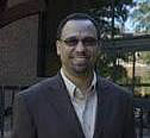Commentary on Matthew 6:24-34
Jesus recognizes the problem of possessions for his first-century audience.
He challenges people to take a position on wealth, a potential threat to God (6:24). In this regard, he operates in the spirit of the prophet Amos. The power of this alternative god is as real today as it was in the first century. Wealth competes with God for the human heart. Capitalism is one of the serious challenges for contemporary Christians. Failure to recognize the class divisions our economic system perpetuates coincides with a distortion of the meaning of Jesus’ famous prayer. The language of forgiveness (i.e., “forgive us our debts, as we also have forgiven our debtors” 6:13) is understood falsely as only an internal spiritual condition rather than an external action of debt relief.
Matthew 6:(24)25-32
Matthew 6:24 may function as the opening to this section (6:24-34), since there is concern here for clothes, and fine foods, and good drink (6:31). But it may also provide the conclusion to the previous section (6:19-24; as in the CEB and NIV). The NRSV’s placement of 6:24 on its own is non-committal. Collecting “treasures” (6:19) provides the overarching theme for this entire section and may more clearly reveal where human passions lie: “For where your treasure is…” (6:21; cf. 19:21).
Do not worry about what you will eat in 6:25 does not mean that food is unimportant; followers of Jesus should pray for “daily bread” (6:11), but then trust God to provide it. For those for whom the scarcity of food is a daily concern, it is not easy to be unconcerned. Jesus makes it sound as if securing clothing is part of the natural process, like the “lilies of the field” which “neither toil nor spin.” Jesus compares these beautiful and well-cared for lilies to Solomon’s wealth, a well-known tradition about the wealthiest royalty in Jewish history. In Jesus’ example, God’s care for nature is even more attentive than this unnatural acquisition of wealth, perhaps a subtle critique generated by 6:24. But the reality of life in the first century for many people was a challenge to acquire the necessities of life-like food and clothing-through laborious living. Yet, life is more than food and clothing. That is, life is more than food for those who do not need to worry about their next meal or whether they will be cold tonight. Clearly, Jesus is not unaware of the challenges of living in first century villages: “Today’s trouble is enough for today” (6:34).
Jesus uses the criticism of oligopistoi in v. 30 (“people of little faith” [NRSV] or “weak faith”[CEB]) only with the disciples (e.g., 8:26; 14:31; 16:8). In two separate occasions, the disciples were startled at Jesus’ power over nature, that is, the miraculous stroll across water (8:23-27; 14:23-33). The disciples’ excitement is understandable. Yet, Jesus still questions the strength of their faith (8:26; 14:31). In 16:8, he questions their level of trust again, but it is not in the context of a miraculous event. The disciples simply fail to grasp Jesus’ teaching about the Pharisees and Sadducees. Here, in 6:30, Jesus focuses their attention on everyday affairs, the mundane. Yet, his followers are encouraged not to “worry” (from merimneso, which means “to care for”; in this instance, it means “to be overly concerned; to care too much; to be anxious”). Where is their faith in regard to the every day cares of life? If Jesus’ followers cannot trust God in these moments, how can they expect to trust God’s grander activities in the world?
To be compared to Solomon is one thing; to be compared to the “Gentiles” is quite another (6:32). It is a term that designates all non-Jews. Matthew’s Jesus shows his ethnic bias, as he utilizes the Gentiles as a negative foil: “do you really want to be like the ethne?” In Matthew’s depiction, this type of ethnic pride appears several times (cf. 5:47; 6:7; 18:7; 20:25; 24:7, 9). Anti-Gentile language is associated with the Matthean Jesus’ focus on the “lost sheep of Israel” (10:6; 15:24), a phrase unique to the first canonical Gospel. Finally, in Matthew’s Gospel, the mission will eventually turn toward the ethne, that is, the “nations, Gentiles, foreigners” in the world.
Matthew 6:33-34
From 6:24-32, Jesus explains what it means not to be motivated by wealth. He has yet to explain what it might mean to serve God. In 6:33, the discussion shifts. For those who seek after God’s rule in the world (6:33), concern for wealth and possessions (6:19-24) conflicts with God’s provisions for the necessities of life (6:25-34). To place effort in acquiring goods for one’s self may distract from seeking righteousness and justice around us. Jesus’ challenge to trust God for daily needs is exactly why he can say to those looking to do good, “If you wish to be perfect, go, sell your possessions, and give the money to the poor, and you will have treasure in heaven; then come, follow me” (19:21). As Mother Teresa famously said, “If you can’t feed a hundred people, then feed just one.”
Summary for Preaching
God will take care of you … so take care of God’s justice in the world. There is more to life than concern for daily needs, though this may be difficult for some (cf. 6:11). But Jesus expects his followers to put forward energy into things that give more meaning to life. We must strive to discern how God is working in the world (i.e., “God’s kingdom”) and how to participate in acts of justice on God’s behalf (i.e., “God’s righteousness”). Beyond that, everything else will take care of itself. Or, to summarize Jesus, God will deal with the rest.

February 27, 2011